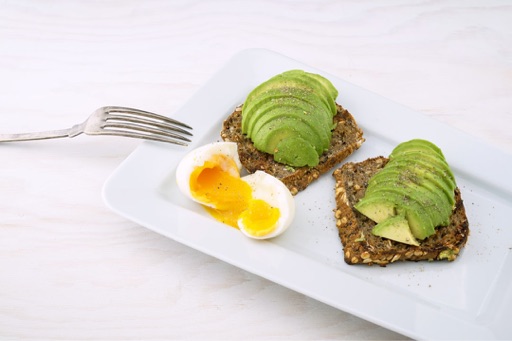When you’re trying to lose weight, eating more protein, staying hydrated, and adjusting your calorie intake feel like no-brainers. But can a specific weight-loss breakfast help you shed those extra pounds, too? A new study from Canadian researchers revealed the best breakfast for weight loss—and why women need different nutrients than men to help power off the pounds.
A new study published in Computers in Biology and Medicine suggests that men and women who are trying to lose weight may benefit from eating different healthy breakfasts. Instead of tracking participants’ weight loss results from different foods, researchers used mathematical models to analyze how men’s and women’s metabolisms respond to different meals.
Generally, women’s metabolisms responded better to meals higher in healthy fats, like those found in eggs or avocados. In contrast, men’s metabolisms responded better to meals with higher carbs, such as oatmeal, toast, or other whole grains.
Why is that? The researchers feel the metabolic differences result from the difference in liver function between women and men. “Women’s livers make more glucose during times without food and also conserve more glycogen (the stored form of glucose),” says Brittany Werner, RDN, a registered dietitian and director of coaching at Working Against Gravity. “This means females will release less glucose, resulting in more fat being burned for energy during fasting (or in this study, overnight).” The responses in the study were noted after several hours of fasting.
The research only focused on carbs and fat. Stephanie Dunne, MS, RDN, IFNCP, founder and integrative registered dietitian-nutritionist at nutrition QED, says it’s important to note that the study did not collect data on the protein or fiber content of the meals, both of which impact how the body metabolizes the carbohydrates and fat that were monitored.
While the study found that men and women metabolize food differently, specifically fat and carbs, Werner shares that they don’t necessarily need to eat separate breakfasts. Instead, they may benefit from different macronutrient ratios (carbohydrates, proteins, and fats). “To optimize weight loss, women could benefit from a breakfast with higher protein and moderate fat,” says Werner. “Men may benefit from a slightly higher carbohydrate breakfast as they use stored glucose (energy) more quickly.”
Additionally, weight loss is a personal experience that has to fit your age, hormone profile, lifestyle, and preferences, explains Dunne. “For example, we know that younger people’s bodies can more easily flex between using fat or carbs as an energy source than older people’s bodies, regardless of sex,” she says.
Nutrition isn’t one-size-fits-all, so it’s important to tailor your breakfast to your long-term goals and specific health needs. However, Werner notes a few general things you’ll want to include when considering your first meal of the day.
Add protein. Protein-rich dishes are a great place to start, and you’ll want to aim for between 20 and 30 grams of protein (more is fine, too!) for breakfast. “Protein helps us feel full and satisfied for longer and supports lean mass while losing body fat,” says Werner. Consider adding eggs, low-fat Greek yogurt, cottage cheese, lean meats, tofu, or a protein shake to your diet and aim for a balance of protein, carbs, and healthy fats.
Add fiber. Want to stay fuller longer? Starting your day with foods rich in fiber helps you feel satiated while providing a few additional calories and supporting a healthy digestive tract, explains Dunne. Some easy options include eggs and avocado, which are fiber-rich and full of healthy fat, or oatmeal with nuts and fresh fruit.
Skip these foods. If you’re trying to lose weight, Dunne suggests limiting breakfast foods that contain simple carbs or lots of sugars, like cereal or pastries. “These can cause a blood sugar spike and crash, leading to mid-morning cravings,” she says.
This content is not a substitute for professional medical advice or diagnosis. Always consult your physician before pursuing any treatment plan.

Source: Woman’s World





